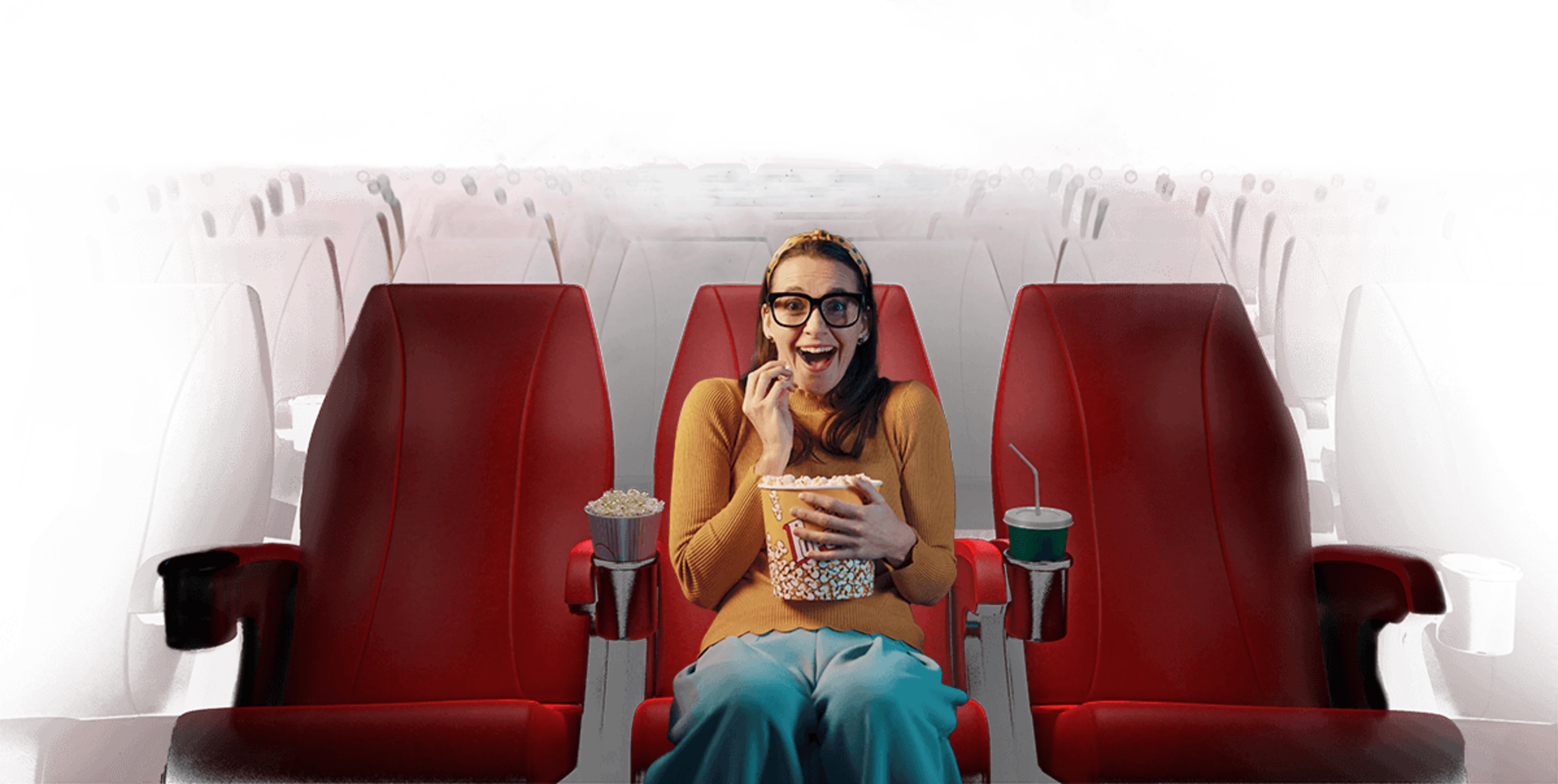Solo cinema trips aren’t admitting defeat - it’s self care.
23 May 2023

23 May 2023

The dimming lights, the darkness. The big screen in front of you illuminates and an echoing voice fills the room, reminding you in no uncertain terms to turn your phone off. You sink back into your seat as the opening credits of the newest blockbuster roll over you, and you lose yourself completely in the picture. Two or so hours later, you emerge from the darkness, blinking in the comparative brightness of the foyer. You thank the people behind the counter and go on your way.
What I have just described sounds like something that a lot of people would consider to be a fairly usual evening out. A trip to the cinema, perhaps to see the newest Marvel blockbuster or a rom-com. With prices for tickets skyrocketing in the cost of living crisis, it surely isn’t as frequent as it used to be but it is certainly common. However, take a moment to relive that visualisation again and work out exactly who you are with, in that scenario.
I learned recently that most people don’t go to the cinema by themselves by casually mentioning on a first date that it was one of my favourite things to do in the evenings, that I usually went once or twice a week. “By yourself?!” he exclaimed. I nodded, unsure as to why this was such an unusual thing. After this, I began asking my friends, many of whom were also shocked: the cinema is something you go to with friends, with your family, on a date. To our generation, it simply isn’t something you do by yourself.
It seems to have been drilled into us by years of childhood birthday parties at the pictures that going to the cinema by yourself is inherently lonely. That to do so is to have admitted defeat, to say that you don’t have anyone else to go with. I have texted group chats, trying to find someone to go to see a BFI release that is only playing for one screening because I was too scared to go on my own. Yet when you look at it realistically, if you were to see someone by themselves in a museum or an art gallery, or even in Primark, you wouldn’t think twice about it. They’re by themselves, some alone time. It’s self care and doing something you enjoy. Why is the cinema any different?
Dr Libby Watson, a clinical psychologist at the University of London said in an interview that:
“Alone time can be restorative and replenishing, providing psychological benefits in terms of stress reduction, understanding the self, and in identifying triggers of stress and other harmful states.”
If you look at a trip to the cinema logically, it makes sense that it is something that you would do by yourself, as it is intrinsically a solo experience: everyone will interpret a film differently. You may go with someone else, but you will sit in the darkness in silence, and understand the movie in your own, deeply personal way.
It’s easier to organise as well. There’s none of the back and forth about when and where, which film you should watch, who is free on what night. You aren’t having to debate the merits of the different rows, whether the back of the cinema does genuinely give the best view or whether you should plump for the luxury VIP seating. You can make your own plans for what you want to see, when and where.
If we take doing so many other things by ourselves as self care - museums, shopping, even going for walks - why is the cinema still so different? Why is it still believed to be a lonely thing to do by yourself, even though you are unable to talk whilst you are there? Is it, perhaps, the fact that we are conditioned to believe that we should go with others? There are countless examples in pop culture of the cinema being used for friendship groups to meet up, or dates, with Heartstopper being the first recent example to come to mind, even if that scenario does not end well for the characters.
Film and the cinema, especially independent cinemas, need our patronage more than ever. If Netflix is your way of switching off, maybe it’s time to try sitting in the dark, getting lost in the big screen instead. It can be put down as an act of self care, it is proven to reduce stress, and it’d be so much easier to organise than going with someone else. It certainly isn't easy to completely ignore social convention, especially in an age where the internet and the TV are telling you that what you are doing isn’t the norm. But if it’s what you love, then it can seem like a fair trade-off.
Written by
Jess Boot-CowieTheatre and Creative Writing student who is interested in the stage, the cinema, and why people do the things they do.
Read next
Where did all my friends go?

Maite Oxford
How the MCU became the McDonald's of cinema

Alistair Maxwell
V&A East: The coolest new museum that's actually relevant to us

Lydia Housley
Weekly emails
Get more from Jess
The Fledger was born out of a deep-seated belief in the power of young voices. Get relevant views on topics you care about direct to your inbox each week.
Write at The Fledger
Disagree with Jess?
Have an article in mind? The Fledger is open to voices from all backgrounds. Get in touch and give your words flight.
Write the Contrast